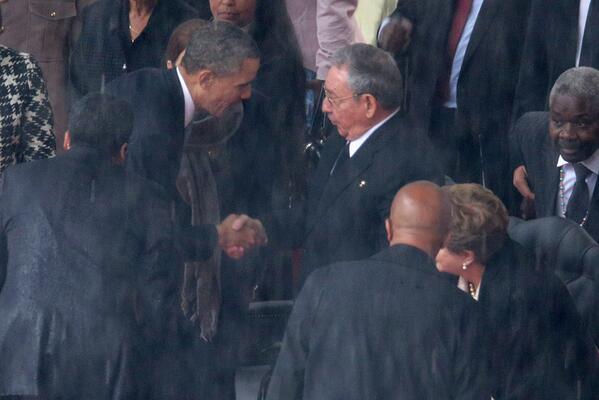
Human behavior and animal behavior resemble one another in so many interesting ways. When an animal approaches the territory of another, it is commonplace for one creature to growl or make noise whenever it perceives its space is invaded. A dog will characteristically bark whenever it hears another dog walk by its territory. Cats will hiss when a new kitten is introduced as a new family pet. Species of birds will utter their squeaky territorial song and fly directly at the intruder, chasing it way from its territory.
The fear of strangers is universal and greetings reflect the ways human beings have tried to de-hostilize someone approaching their turf. The custom of the handshake goes back at least to Grecian times in the 5th century B.C.E., as seen on a funerary stele. People believe that the handshake demonstrate that one comes in peace without holding any weapon.
Although it is a simple gesture, a simple handshake can dissolve walls of animosity that have been in place for decades. President Obama’s handshake with Raul Castro at the Nelson Mandela funeral created shockwaves in the international diplomatic community. Many pundits have criticized him for showing a gesture of respect to a political adversary of our country. This writer takes umbrage with such a narrow attitude.
The news story about reminded me of wonderful story from Yaffa Eliach’s excellent book, Hassidic Tales of the Holocaust. The story tells how a sincere greeting to a Nazi officer saved a concentration camp prisoner’s life.
- Near the city of Danzig lived a well-to-do Hasidic Rabbi, scion of prominent Hasidic dynasties. Dressed in a tailored black suit, wearing a top hat, and carrying a silver walking cane, the rabbi would take his daily morning stroll, accompanied by his tall, handsome son-in-law. During his morning walk it was the rabbi’s custom to greet every man, woman, and child whom he met on his way with a warm smile and a cordial “Good morning.” Over the years the rabbi became acquainted with many of his fellow townspeople this way and would always greet them by their proper title and name.
- Near the outskirts of town, in the fields, he would exchange greetings with Herr Mueller, a Polish Volksdeutsche (ethnic German). “Good morning, Herr Mueller!” the rabbi would hasten to greet the man who worked in the fields. “Good morning, Herr Rabbiner!” would come the response with a good-natured smile. Then the war began. The rabbi’s strolls stopped abruptly. Herr Mueller donned an S.S. uniform and disappeared from the fields.(*) The fate of the rabbi was like that of much of the rest of Polish Jewry. He lost his family in the death camp of Treblinka, and, after great suffering, was deported to Auschwitz.
- One day, during a selection at Auschwitz, the rabbi stood on line with hundreds of other Jews awaiting the moment when their fates would be decided, for life or death. Dressed in a striped camp uniform, head and beard shaven and eyes feverish from starvation and disease, the rabbi looked like a walking skeleton. “Right! Left, left, left!” The voice in the distance drew nearer. Suddenly the rabbi had a great urge to see the face of the man with the snow-white gloves, small baton, and steely voice who played God and decide who should live and who should die. His lifted his eyes and heard his own voice speaking:
- “Good morning, Herr Mueller!”
- “Good morning, Herr Rabbiner!” responded a human voice beneath the S.S. cap adorned with skull and bones. “What are you doing here?” A faint smile appeared on the rabbi’s lips. The baton moved to the right – to life. The following day, the rabbi was transferred to a safer camp.
- The rabbi, now in his eighties, told me in his gentle voice, “This is the power of a good-morning greeting. A man must always greet his fellow man.” [1]
There is one quote from Rabbi ben David’s book Shalom Aleichem that I really liked that the author attributed to Rabbi Yitzchak Zilberstein.
- A person might belittle this simple act. He might think that nothing is accomplished by simply saying “Good Morning” respectfully to someone he passes on the sidewalk instead of looking the other way as if he does not exist. You never know, however, how much that person is looking forward to a warm greeting from another human being (p. 123).
Zilberstein is correct. A handshake and a greeting expresses more than just words, but a willingness to communicate with the Other.
The Jewish philosopher Emmanuel Levinas has written extensively about the power of the human face. When we see a face staring at us, behind that face is a human being like ourselves that commands respect—even if that person happens to be an enemy. The power of a greeting has the ability to transform human relationships.
===
Notes:
[1] Yaffa Elliach, Hassidic Tales of the Holocaust (New York: Avon Books, 1982) pp. 129-30.